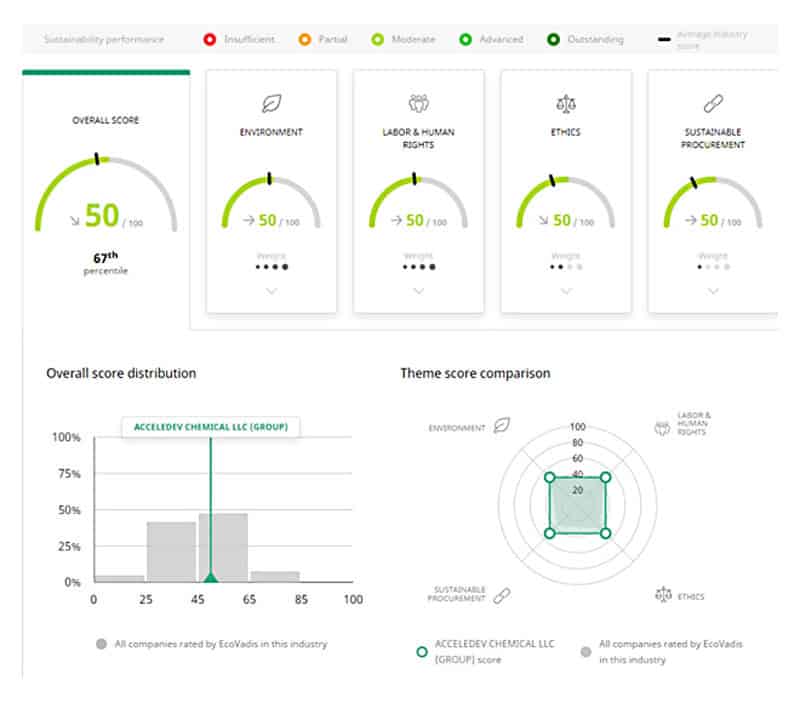Environmental, Health and Safety
Accelerating, transforming challenge into success
Fully committed to protecting our people and the environment
AcceleDev places a high value on Environmental, Health and Safety (EHS). We are committed to protecting the well-being of the environment as well as the health and safety of all our employees. We have designed and developed state of the art facilities and safety protocols to ensure that EHS principles are a key component of our business operations. We have continuously enhanced our policies and procedures to meet or exceed increasingly strict global regulatory requirements. We conduct process safety evaluations for all processes and utilize DSC and Sedex equipment to facilitate in-depth HAZOP testing and reviews. All batch records include detailed information about safe chemical handling procedures as well as process specific PPE requirements. All wastewater from our labs and production facilities is captured, analyzed, and treated according to strict site and government regulations. Solid waste and waste gases are collected, monitored, treated and disposed of according to strict site and government regulations/ oversight.
All employees receive EHS training on an ongoing basis and an abundance of safety information is made available to the employees via the appropriate signage and other communications.
AcceleDev has been recognized for our commitment to EHS, and was awarded a “Silver Recognition Level” for Corporate Social Responsibility (CSR) for sustainable supply management by EcoVadis, an independent leader in business sustainability assessment. AcceleDev received an overall score in the 67% percentile of the companies rated by EcoVadis. See below.

